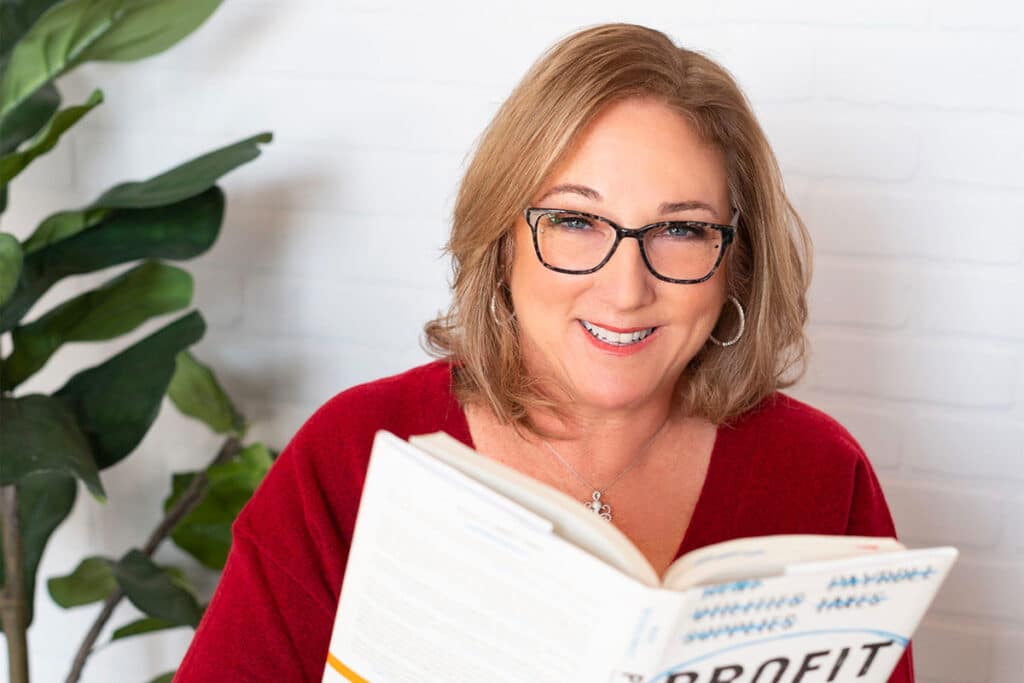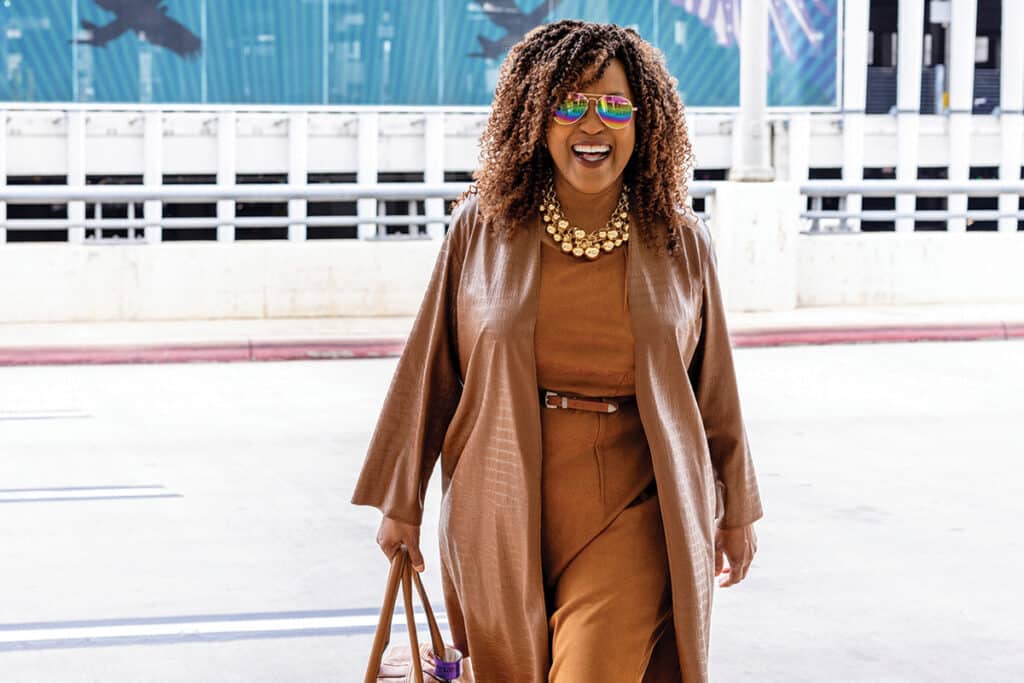
Friendship has always been part of human communities but in our busy lives and mobile society it’s not easy to keep friendships alive. Yet both social and neuro-medical scientists increasingly confirm the benefits of social engagement for our health, wellbeing and even longevity. Here are three stories of women who have made the effort to build and sustain lasting friendships that expand their happiness and enrich their lives.
Photo by Jessica Giesey.
Intertwined Lives
Jackie Meyer and Margaret Mitchell grew up on the same San Antonio Street, two blocks apart from each other. There was never a time that they did not know each other, and yet, oddly, they did not become really close until their college years. Though Margaret, who is two years younger, attended Texas A&M while Jackie studied at UT Austin, the young women found themselves attending the same parties and hanging out with the same circle of people during their visits home. “Our lives became intertwined,” says Jackie, and the ties increasingly included the young men who would become their husbands.
Today, the two friends continue to live on the same street, within walking distance from each other. I met them at Jackie’s house on a gloomy, rainy day but their good mood and easy laughter helped us forget the brewing storms. Since those carefree college years, they have been there for each other throughout the decades. As newlyweds, they both taught school for a short time, with Jackie helping Margaret to get a job at her school, and when the latter quit to have her first baby, Jackie quit, too, “to keep her company.” Margaret then proceeded to have another child while Jackie suffered three miscarriages. “She let me love her two babies and that sure helped fill a void in my life. Everybody was having babies but thanks to Margaret I didn’t feel like I was pushed aside because I didn’t have a child,” said Jackie, still grateful so many years later. She eventually adopted a little girl and all the kids grew up together, moving from one household to the other as if they belonged both places. For years, the two families gathered every Friday night to share dinner and togetherness. (Margaret eventually had two more kids.) The two friends’ memories include a lot of moving stories about mutual support in family crises – visits to ER, cancer scares and dying parents.
Beyond family life, the women have shared almost everything else in life. They attend the same Bible study at Alamo Heights United Methodist Church, go to the same exercise class, belong to the same organizations, and with their husbands, have traveled together, now that their children are grown and gone. They call each other or text every day, consulting each other on most issues, from trivial to grave. “She is my soulmate,” notes Margaret.
“Husbands don’t always want to talk,” she continues. “When we have a situation (that needs discussing) Jackie and I will go over it fifty different ways. Our husbands can handle maybe two ways. Also, sometimes you just need someone to listen to you, not to tell you what to do.” Perhaps concerned that these comments may reflect negatively on their spouses, Jackie quickly adds that both have “great husbands” who are also mutual friends.
The women are good for each other in other ways, too. “I have a bit of an Irish temper and she always calms me down,” observes Margaret. “And she has this saying from her mother that I love: Don’t trouble trouble until trouble troubles you. Isn’t that a great saying?” What Jackie appreciates in a special way is her friend’s ability to tell her the unwelcome truth in a loving way. “My husband can tell me something and make me mad. She can tell me the same thing, and I am fine with it. It’s the way she talks to me.”
Intertwined as they are, however, the two love to interact with a wider circle of people. “We are not exclusive,” notes Jackie, “we embrace other friends. We are attracted to other fun and crazy people (laughs). We like to have fun and laugh. We can have fun shopping or eating lunch, or doing something else; it doesn’t matter what it is as long as we are together.”
So, what was the most fun thing they ever did?
There were so many, says Jackie, then narrows the choice to the time when Margaret’s husband was King Antonio (during Fiesta 2009) and describes it “as a blast.” But Margaret surprises us both by saying: “The day they brought her daughter home. We threw a party to welcome the baby.”
Many people would envy the closeness and mutual support these two have had for decades. Do they have any advice on how to forgive and nurture long-lasting relationships? Both talk for a while about reaching out to others, being helpful to people, participating in activities, etc. – all valid points – but Margaret sums it up best, perhaps, when she says, “You have to make time for friendship.”
Always there for each other
They no longer live in the same city, but the group of women Beverly Watts Davis summoned to the Ella Austin Community Center on a Saturday afternoon in early June, all say they have come simply because she asked them to. That’s the kind of mutual commitment they have. But they also like the idea of talking about their friendship that has been the source of support, love and fun for many years. Though most are originally from San Antonio, life has since taken them in different directions. Within about eight years after college, they all got married, many moved away, started families and focused on careers. Then one of them, Bennie Hilliard Brown — whom Houston-based securities lawyer Yava Scott called “the core of the apple” — suggested that to maintain their friendship it would be good to get together every summer for a weekend of camaraderie, eventually dubbed “The Girls’ Weekend.” They have been doing it ever since. In the early years, when they used to meet in each other’s homes, it wasn’t unusual for the husbands to leave the home and spend the weekend at a hotel. “No men allowed” is still the rule. “We predate our husbands,” explains Cynthia Clanton who works for the Department of the Treasury. To which Beverly adds, “We may not always have husbands but we will always have us.”
Just listening to them talk is heartwarming. It’s clear that they share a special bond, forged and tested not only by time but also by all sorts of life experiences, from happy milestones they joyfully celebrated together to disappointments, heartaches and even deaths. Three of their members have died, including most recently Beverly’s sister who perished in a house fire. Tears mist the eyes of several women as they speak of her. In fact, she had organized this summer’s cruise for “The Girls’ Weekend” and it will be a bittersweet experience to go without her.
“The day I found out that my sister passed, someone called Yava. Within a day, she mobilized everyone; the military could not have done it better,” said Beverly, describing how several group members cleaned her house and stayed with her while Rev. Trudy Huff, a member from Bellaire, TX, prayed for her. “I was in shock (at the time). Their presence and concern are truly what got me through those days and gave me the strength to keep moving.” All seem to have similar stories to share. Yolanda Miller, deputy purchasing officer for the City of Austin, recalls how Trudy stayed with her for a month when she had her first child as a single woman. Then three others came to help. One of them, teacher Yvonne Horne Clemons, became the baby’s godmother.
They also feel they have created a mentoring milieu for each other. “You can’t get that at work,” observes Yolanda. “We help each other to make good decisions.” Beverly said, “This peer group has shaped how I make decisions. If I messed up I would have to reckon with them. They would not let me slide. Knowing that has been like wind under my wings.”
As a group, they once took part in one of those team-building exercises where you have to depend on each other to overcome difficult physical challenges, like climbing a steep wall or using a rope bridge to cross a creek. They all made it. “We accomplished it as a team,” notes vivacious Yolanda. Because they work so well together, they have no desire to bring new people into their circle. It would disrupt the familiar group dynamic. Cynthia even refuses to include her sister.
“How do they deal with disagreements and hurt feelings that must occur from time to time,” I ask. The responses vary. “We must get over hurts because we want to go to ‘The Girls’ Weekend’,” quips Yolanda, while Trudy says softly, “I just cry.” Yvonne has another take on the issue. “What’s good about having a group,” she explains,” is that you can talk it over with a third person who may give you another perspective on the issue, which then helps you overcome the situation.” Loyalty to each other is also a factor.
At present, several are divorced and their children have left the nest. Yet they have no worries about loneliness. “I’ll be honest with you,” said Beverly, “The fact that I have these friends makes living as a single (divorced) woman less of a factor in my life. I don’t feel like I need to be married. My friends have played a major role in making me feel complete.”

Photo by Jessica Giesey.
Common cause
Sometimes joining an organization may be a great way to make friends. Sharon O’Malley Burg and Cynthia Schluter are members of Impact San Antonio, a group that pools its monies to award grants to nonprofit agencies in the greater San Antonio Area. They met for the first time in a home of another member, then found themselves working together on a committee that reviews the organization’s grants to educational nonprofits. “In that context you get a lot of opportunity to get to know someone,” said Sharon, who runs her own management consulting business. “We spent a lot of time together. Then we became co-chairs of another committee and…” But before she can finish, Cynthia jumps in with, “Then we basically moved in with each other!” Everyone laughs while Sharon gets to finish her thought: “It became truly a partnership.”
Though the necessary organizational work gets handled, the committee members also bond on a personal level. Cynthia recalls a meeting during which the five participants ended up sharing joys and sorrows of their lives. One woman revealed that she had recently lost her husband and another, who had been a widow for a while, offered sympathy and advice based on her own experience. These kinds of conversations in a safe environment create ties-that-bind, she points out.
While Sharon and Cynthia’s friendship started and grew thanks to Impact SA, former teacher Kathy Hassenger actually decided to join the organization because her good friend Sylvia Samano asked her to. Though raised in San Antonio, both women spent many years away from their native city but kept in touch. What’s more, Sylvia introduced Kathy to her second husband who happens to be Sylvia’s brother-in-law. A former AT&T executive, Sylvia herself joined at the invitation of a friend and after nearly 40 years away, was delighted to meet local people. Presently, Impact SA has 451 members, from all walks of life. “We are very diverse,” she said. “I met so many women whom I wouldn’t have met in any other way, from different parts of the city, different ages, backgrounds, occupations.” Sharon had a similar experience. When her husband retired from the military and the family relocated to San Antonio, she hardly knew anyone here. Thanks to some other volunteer engagements, she found her way to Impact SA, which she says “put (her) in the epicenter of the community.”
Working together on projects they all believe in, tends to be uplifting as well. The Impact women are in the organization because they care for the wellbeing of the community, so when they finalize a project successfully, “you feel like you are in camp, that we all collectively accomplished this cool thing,” observes Cynthia. The friendships forged along the way are for life, she adds.
While friendship expresses itself in a myriad of ways, for Kathy the most important thing is knowing that a true friend will always be there for you. You can count on her. Cynthia mentions honesty while Sharon brings up the benefits of two people complementing each other. “Cynthia loves details and I tend to look at a big picture. I really appreciate what she brings to the relationship; we complement each other. And trust is also essential,” she comments. All agree that women are probably better at this friendship business than men.
Then I introduce a difficult question, inspired by something author Barbara Bradley Hagerty wrote about in her book Life Reimagined. Should you have to undergo a challenging medical procedure, would you rather have your husband present or your friend? After a short silence, Kathy offers an interesting answer: “I would want my husband there but I think I would get more support from my best friend.” To which Cynthia quips: “My husband doesn’t do medical stuff well!”

Photo by Martin Waddy.
There’s a lot of laughter around the table during our conversation as memories of fun activities and outings both in and outside of the organization are shared as well. Clearly, these ladies love Impact SA. But then, the talk shifts to lonely, friendless people and why some women have a hard time making friends. “They are fearful and insecure, so it’s hard for them to open up because by opening up you make yourself vulnerable in some ways,” said Cynthia. Sharon amplifies the discussion by observing that women often see each other as competitors which prevents them from extending a helpful hand to one another. Referring to her experiences in the IT field back in the mid-80s, she tells us that there so few women in IT at that time, that they rallied together rather than go against each other. “There is plenty of room for all of us to be successful,” says Sharon with conviction. “We should serve as role models for other women and mentor each other.”
BY JASMINA WELLINGHOFF




